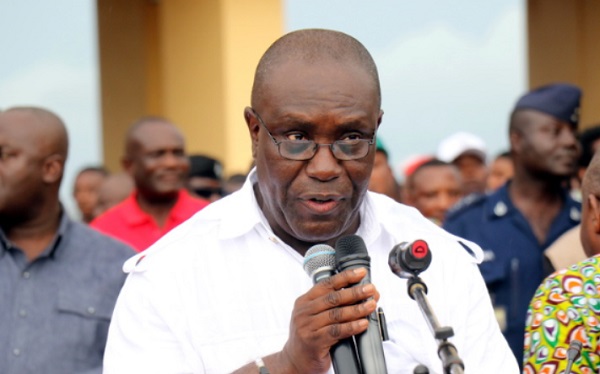The Trades Union Congress (TUC) has vehemently rejected the proposal for a 15 percent Value Added Tax (VAT) on electricity consumption, calling it irresponsible and unconscionable, especially given the current economic challenges faced by Ghanaians.
Dr. Yaw Baah, the General Secretary of the TUC, emphasised in an interview on JoyNews Newsfile on Saturday, January 27, that such a tax measure at this time is unacceptable.
He conveyed the union's strong stance against the proposed tax, asserting that it will not be allowed to be implemented.
He highlighted the potential for unrest in the country if the government persists in its decision.
The TUC General Secretary urged the government to engage in dialogue with all stakeholders to find a comprehensive solution to the prevailing economic challenges, rather than imposing additional taxes on an already burdened Ghanaian populace.
"In the situation we find ourselves right now, I don’t think we need more taxes. We need some form of cushion. We are hoping that they will listen to us so we will have some peace in this country because we will never accept that tax."
"The situation we find ourselves in, it’s not only Ken Ofori-Atta and the government that can take us out. It will require all of us to dialogue. It is irresponsible for the government to tax Ghanaians again. I challenge them to bring all the stakeholders together and a solution will be found," he told host Samson Lardy Anyenini.
The government has outlined the rationale for the imposition of a 15 percent VAT on electricity consumption.
This measure is part of the government's COVID-19 recovery programme, aiming to generate additional revenue.
Deputy Energy Minister Agyapa Mercer, speaking in an interview with Citi FM on Monday, January 15, emphasised that while it was a challenging decision, it is necessary to settle debts owed to independent power producers.
“Obviously, if you look at the scope of the tax and what it is intended to do—raise revenue to meet some obligations of the government in the energy sector—it will interest you to know that, as we speak, as of July 2023, the amount of money that we owe to the IPPs alone is in the region of GH¢1.7 billion.
But the TUC has issued a seven-day ultimatum to the government to revoke the tax measure or face their wrath.
Latest Stories
-
Cedi appreciation to slash Ghana’s debt stock by 10% ahead of MPC meeting – JoyNews Research
7 minutes -
‘The market women will lead the order’ – Accra Mayor’s new approach to reclaim choked business district
18 minutes -
‘I’m bringing back the Red Line’ – Accra Mayor vows to decongest Accra streets for good
50 minutes -
Can Mandela’s former negotiator charm Donald Trump?
1 hour -
UN court backs E Guinea in Gabon dispute over islands in oil-rich waters
2 hours -
Tanzania president warns ‘meddling’ Kenyan activists
2 hours -
Nigeria’s fierce political rivals share joke at pope’s inaugural mass
2 hours -
World-first gonorrhoea vaccine launched by NHS England as infections soar
2 hours -
EU plans €2 fee on small parcels in hit to Shein and Temu
2 hours -
Doubts over whether Brits can use EU e-gates this summer
3 hours -
Trump pressures Republicans to back his ‘big beautiful’ tax bill
3 hours -
Zelensky accuses Russia of ‘buying time’ to stall truce talks
3 hours -
Man who helped smuggle more than 3,000 people into Europe jailed
3 hours -
Jennifer Lopez sued in copyright case for posting photos of herself
4 hours -
US congresswoman charged with assault outside immigration centre
4 hours

